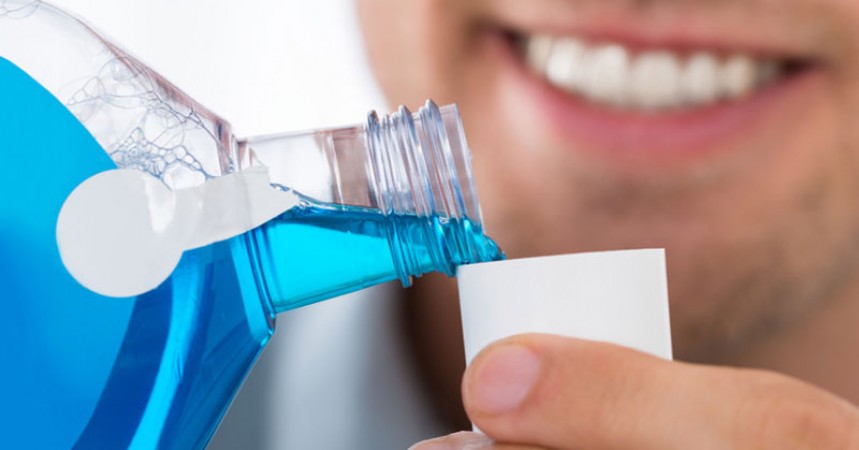
A dazzling smile and fresh breath are not only appealing but also indicative of good dental health. While brushing and flossing are fundamental, the use of mouthwash can provide an extra layer of protection.
Understanding the Importance of Mouthwash
Mouthwash, also known as oral rinse or mouth rinse, is a liquid solution designed to be swished or gargled in the mouth. It contains various ingredients that can help combat bacteria, plaque, and bad breath.
Different Types of Mouthwashes
Antiseptic Mouthwashes
Antiseptic mouthwashes are formulated to kill bacteria and reduce the bacterial load in the mouth. They often contain active ingredients like chlorhexidine or hydrogen peroxide, which can be effective in preventing gum disease and maintaining oral hygiene.
Fluoride Mouthwashes
Fluoride mouthwashes are focused on strengthening the enamel of the teeth and preventing tooth decay. Fluoride, a naturally occurring mineral, helps rebuild weakened tooth enamel and reduces the risk of cavities.
Natural and Herbal Mouthwashes
For those who prefer natural ingredients, there are mouthwashes available that use herbal extracts like tea tree oil, aloe vera, and mint. These can provide a refreshing feeling and contribute to overall oral health.
Prescription Mouthwashes
In some cases, dental professionals may prescribe specialized mouthwashes to address specific oral health issues. These could include mouthwashes to manage gum inflammation or treat infections.
Choosing the Right Mouthwash for You
Considering Your Dental Needs
The type of mouthwash you choose should align with your specific dental needs. If you're prone to cavities, a fluoride mouthwash might be beneficial, while those with gum issues could opt for an antiseptic variant.
Seeking Professional Advice
Before incorporating a new mouthwash into your routine, it's wise to consult with a dentist or dental hygienist. They can provide personalized recommendations based on your oral health.
Proper Usage of Mouthwash
Step-by-Step Guide
Using mouthwash is a straightforward process. After brushing and flossing, measure the recommended amount of mouthwash, typically about 20ml, and swish it around your mouth for 30-60 seconds.
Frequency and Timing
Mouthwash can be used once or twice a day, depending on your needs. Some prefer to use it in the morning to start the day with fresh breath, while others find it more effective before bedtime.
Benefits of Using Mouthwash Regularly
Reducing Bacterial Load
Mouthwash can reach areas that a toothbrush and floss might miss, helping to reduce the number of bacteria in the mouth and lower the risk of infections.
Fresher Breath
One of the immediate benefits of mouthwash is the fresh feeling it provides. Mouthwash can mask bad breath and leave your mouth feeling clean.
Enhanced Gum Health
Antiseptic mouthwashes, in particular, can contribute to healthier gums by reducing inflammation and preventing gingivitis.
Added Cavity Protection
Fluoride mouthwashes provide an extra layer of protection against cavities, making them a valuable addition to your oral care routine.
Potential Drawbacks and Precautions
Alcohol Content
Some mouthwashes contain alcohol, which can be a concern for individuals with a history of alcohol abuse or those with a dry mouth.
Allergic Reactions
Natural and herbal mouthwashes may contain ingredients that some individuals could be allergic to. It's important to read the label carefully and perform a patch test if needed.
Overuse and Risks
Using mouthwash excessively or not as directed could lead to potential risks, including disrupting the natural balance of oral bacteria.
Addressing Common Questions About Mouthwash
Can children use mouthwash?
Yes, but it's important to choose a mouthwash specifically designed for children and to supervise their usage.
Is natural mouthwash as effective as conventional ones?
While natural mouthwashes can offer benefits, they may not be as effective as those containing active ingredients like fluoride or antiseptics.
Can mouthwash replace regular brushing and flossing?
Mouthwash is a complement to brushing and flossing, not a substitute. A comprehensive oral care routine includes all three.
Are there any side effects of using mouthwash?
Some individuals may experience a temporary burning sensation or dryness of the mouth, especially with alcohol-containing mouthwashes.
How should I incorporate mouthwash into my daily routine?
Mouthwash can be used after brushing and flossing, either in the morning or before bedtime, based on your preference.
Incorporating mouthwash into your daily oral care routine can contribute to a healthier mouth, fresher breath, and added protection against common dental issues. With a wide variety of options available, it's essential to choose the right type of mouthwash based on your individual needs and seek professional guidance when necessary.
The Wholesome Wonder of Prunes: Unveiling Remarkable Health Benefits
Harnessing the Power of Flax Seeds: Uncovering 8 Remarkable Health Benefits